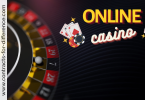When we talk about psychology for share trading, we are really talking about two different things. We are talking about the psychology of the masses, of all the share traders combined. We are also talking about the psychology of you, the individual trader. You can not change the psychology of the masses, but you must learn to understand it.
However you can and must understand your own psychology and must be prepared to change it, if changes are needed. We shall examine the psychology of the individual trader first of all.
Sooner or later, you will realise that there is more to trading than just looking at fundamentals and reading charts. If you have not failed early in your trading career, (I believe that at least 80% of traders fail) then you will realise that many of your problems stem from your own personality. One of the greatest problems is that of fear. Fear of missing a trade, fear of losing money, fear of leaving money at the table, fear of being wrong. You must learn to overcome these emotions if you want to succeed in trading.
All our lives we have been taught not to be wrong, not to lose money. Trading does not work like that.
The majority of traders spend most of their time looking for good trades. Once they enter a trade, they lose control and either suffer stress from losses or are jubilant with pleasure. They ride along with these emotions and forget about the essential element of becoming a successful trader – keeping emotions under control. Winning traders know the importance of psychology in trading, whilst amateurs are not aware of it or ignore it. I will try to show you how to manage your emotions as a trader.
Michael Taylor, an experienced stock trader quoted some dangerous words he hears from new traders:
1. “You’ve only lost if you sell
2. “It’s not worth it trading small”
3. “What’s the most I can make?”
Here’s what you should be thinking:
❌ “You’ve only lost if you sell
✅ “If the price is down then I’m down”
If a stock has halved in price then what you bought is now worth 50% less.
❌ “It’s not worth it trading small”
✅ “I need to trade small to protect my risk”
Your positions scale as your account gets bigger.
But not if you blow your account first.
❌ “What’s the most I can make?”
✅ “What’s the most I can lose?”
You need to focus on staying in business first. Survival is your priority.
90% of traders fail before they reach profitability. Change your mindset to be the 10%.
Unfortunately, trading often appeals to people who love it for the excitement, who think they can make money quickly with very little capital or have some other hidden psychological agenda. Most people only fiddle with their trading. They look a bit here, a bit there, listen to what the papers say, what the analysts say, what the brokers say. But they have no firm strategy.
If you trade for excitement, you will surely take trades with bad odds and unacceptable risks. Emotional trading always results in losses. If you have losses in the market, who do you blame? Whose fault is it? Was the market wrong? Did the big traders manipulate the market? Is insider trading to blame? We try to blame any number of external reasons.
However there is only one person to blame – YOU the trader. It is important that we accept this fundamental rule before we become good traders.
Successful trading has four important ingredients: psychology, reading the market, a good trading plan and money management. This web site will explore each of those aspects, however here we shall deal with the psychological aspect.
People often ask me if my training as a psychologist has helped me to become a good trader. Yes, it has taught me to see reality, to look at myself and my emotions and taught me not to waste energy on regrets and hindsight. Use hindsight as a learning tool, not as an “if only” tool. Wishful thinking does not help, action does.
Learn that each trade is an independent event, it does not affect the next trade and is not affected by the previous trade. Learn that you will always have individual trades with losses and learn to accept these losses as being a reality for every successful trader.
Let’s have a look at your trading personality. Are you a discretionary trader or a mechanical trader? I interpret a discretionary trader as a trader who uses his mind to pick each trade by feeling, what they read in the papers, tips from brokers, friends, and so on. A mechanical trader is one who has a good trading plan and follows this plan regardless, but who is willing to fine tune the plan slowly and constantly. He does not change the plan during an open trade. He trades by the right hand side of the chart. Why? Because he does not know what will happen tomorrow.
Let us investigate what sort of trader we are. What sort of trader are you? You know, trading is hard and stressful, unless you know how to manage your stress, you will have problems. Where is the secret that allows you to beat the market, to succeed in this game amongst all the professionals who have all the equipment, all the money, all the training and everything else which you and I can never have? I tell you where the secret is. The secret is within you.
Because the entire world is as you see it, your perception is your world. Only you know how you will react to criticism, how you will react to the inevitable losing streak, how you will react to a nice fat win. Your attitude is shaped by your belief system, which is shaped by your values. Your attitude to money, to boredom, to excitement, to persistence is yours and yours alone. You have to become aware of it to control it or, dare I say, change it.
Sit down with a piece of paper, or better still, start a trading diary, and work out what sort of personality you really are. Are you suited to trading, to follow a mechanical plan, to take a few losses, to work by yourself? Then sit down and prepare a trading plan suited to your personality. An investor will have a different personality to a day trader, who will have a different personality to a trader for the medium term. And each one of these investors will have a different trading plan. You may well be suited to trade each of these aspects; however each trading plan will be different. Oh, did I talk about a trading plan? You do not have one? Better prepare one now before you enter any further trades.
What sort of trader are you? Send me an email if you wish, and I will continue this discussion soon.







